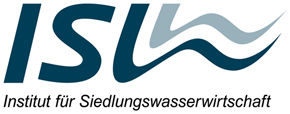
Katrin Bauerfeld
Influence of Different Climate Conditions on Sewage Sludge Treatment
Abstract
With the number of wastewater treatment facilities increasing worldwide, the demand for adequate sludge treatment and disposal concepts rises accordingly. In Germany and Central Europe, various options for treating sewage sludge are available. However, when exporting these technologies to other countries, the effect of different climatic conditions plays a key role in deciding on the most suitable treatment option, especially for biological stabilization and natural dewatering systems.
This research work aims at quantifying treatment and disinfection efficiency under varying climatic conditions. It investigates aerobic and anaerobic stabilization of liquid sludge as well as composting of dewatered sludge with organic waste. In addition, quick and slaked lime treatment and different natural sludge dewatering and drying methods are compared, since these low-cost technologies can benefit particularly from high temperatures and solar radiation. Recommendations for process design and operation are given, based on a literature review and lab-scale test results taking into consideration treatment objectives that allow a maximum reuse of high-quality sludge in agriculture.
Experimental results show that aerobic post-stabilization is suitable for both, cold and warm climates, taking into account longer sludge retention times at decreasing temperatures. However, for a fully completed anaerobic digestion, temperatures above 25 °C are necessary. Thus, anaerobic processes in warm climates can be operated without additional heating. Nevertheless, an appropriate reduction of pathogens for unrestricted agricultural reuse, indicated by Escherichia Coli concentration, can only be reached at thermophilic aerobic and anaerobic conditions. In contrast, composting of dewatered sewage sludge with organic bulking material is only affected by ambient temperature variations during the initial heating phase. Degradation and disinfection are mainly influenced by process control (e.g. bulking material characteristics, oxygen supply, water content, turning). With temperatures above 55 °C in the compost mixture, high disinfection results are possible for unrestricted reuse of the material.
Addition of quick lime and slaked lime basically depends on sludge characteristics. Ambient temperature only influences water removal during storage of the material. For realizing long-term pH-values above 12.5, the required quick lime quantity amounts to 15 to 45 % of sludge dry mass. In order to keep exothermic temperature reactions on levels higher than 55 °C for maximum disinfection, the required quick lime quantity has to be multiplied by 1.5 to 2.5. Typical slaked lime application rates for liquid sludge treatment vary within 5 to 8 kg Ca(OH)2/m³ for sufficient pH increase. Lime treated sludge has a high microbiological quality, allowing unrestricted reuse in agriculture.
Water removal in natural dewatering and drying systems strongly depends on climatic conditions. In temperate climates, a mean annual sludge solids loading rate of 15 to 55 kg/(m²∙a) can be realized, nearly doubling the sludge loading rates for cold climates. Compared to conventional sludge drying beds and reed bed systems, solar sludge drying is most dependent on climatic conditions but highly effective, allowing twice as high sludge loading rates as in temperate conditions.
Altogether, the research results can be considered as a comprehensive basis for the design and the evaluation of different sludge treatment options. Nevertheless, a number of additional local factors have to be taken into consideration to guarantee long-term benefits of sludge management concepts. This not only includes physico-geographical, but also legal and socio-cultural aspects and requirements as well as the integration of already existing technologies and financial issues. Therefore, the results and recommendations presented in this thesis have to be evaluated at full-scale and at local conditions.
Vacancies of TU Braunschweig
Career Service' Job Exchange
Merchandising
Term Dates
Courses
Degree Programmes
Information for Freshman
TUCard
Technische Universität Braunschweig
Universitätsplatz 2
38106 Braunschweig
P. O. Box: 38092 Braunschweig
GERMANY
Phone: +49 (0) 531 391-0
